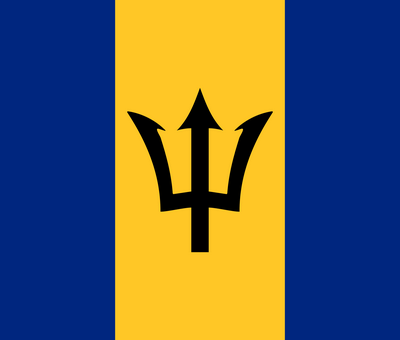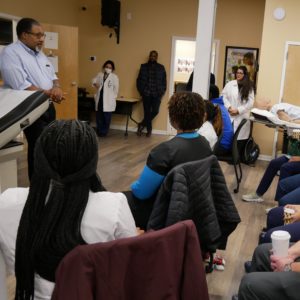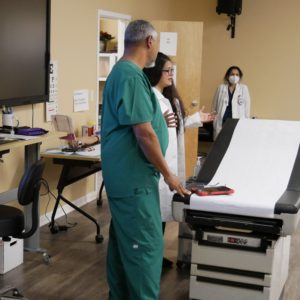Over the past few decades, US medical establishments have vilified Caribbean medical schools claiming that their education is sub-par and that the likelihood of a student being able to practice medicine in the United States is slim to none.
However, recent survey results prove that these medical establishments have been for lack of a better word – wrong. Competition for admission to medical schools in the United States is fierce, many applicants consider attending a foreign medical school. In fact, many bright applicants are now opting to obtain their medical education in the Caribbean, in fact, 27% of all praticing physicians in the US are IMG’s. There are over 70 medical schools across the Caribbean, and about half of them cater to Americans.
“The physicians who graduate from Caribbean medical schools play an increasingly important role in the US health care system by supplying residency programs with qualified applicants and helping to meet a well documented physician shortage, particularly in primary care medicine. While accreditation, didactic studies (first and second years of medical school), and clinical rotations (third and fourth years of medical school) differ among institutions, requirements for graduate certification in the United States, as outlined by the Philadelphia based Educational Committee on Foreign Medical Graduates, are the same for all students graduating from all international schools, including the Caribbean.” A recent study by van Zanten and Boulet, published in Academic Medicine, found that the quality of the medical education in Caribbean medical schools was anything but underwhelming. They evaluated the USMLE Step 1 fist time passing results and what they uncovered seemed to prove how superior the foreign medical students fared in comparison to the US medical students. “The countries with the highest percentage of students passing the (USMLE) Step 1 on the first attempt were Grenada (84.4 %) and Dominica (69.7%).”
There are many factors to consider when contemplating whether or not to apply to a Caribbean medical school. For one, the acceptance rate for Caribbean medical schools is far more desirable as compared to US medical schools. “Caribbean schools get far fewer applications and have a much higher acceptance rate, making it much easier to get in – even if you’ve been turned down by other schools.” And because there are fewer applicants, the C you received in several of your science courses should not pose to be an issue. “Your GPA and MCAT scores can be lower than average and you may still be accepted to a Caribbean school.” One of the biggest challenges you’ll face between med school and becoming a doctor is finding a clinical rotation opportunity. Many Caribbean schools are affiliated with American teaching hospitals that reserve slots for students coming in. You’ll get the same quality clinical experience as US students, and the majority of qualified students are matched with a program. Worried about finding the money? US financial aid is available for all accredited schools. In fact, about 90% of all student loans approved for American students in foreign schools goes to Caribbean colleges. American medical schools often pack hundreds of students into a lecture hall. Caribbean schools are smaller and more intimate, with 50 students or less to each teacher. You’ll get more personalized attention and more opportunity to ask questions and schedule one-on-one time.
More importantly, it’s not just about the preceding factors that should be weighed and contemplated in the US medical school vs Caribbean medical school war. As anything in life, it is all about first-hand accounts. Students who currently attend American University of Integrated Sciences recently shared their thoughts and views regarding their experience at a Caribbean medical school. One student reports, “I understand why people would prefer a US medical school- more comfortable living environment, affiliation and connections into hospitals to increase their residency chances, and bank loans (Caribbean schools don’t have these) , but at the end of the day we take the same US medical board exams as the US students, so if you pass those, it really doesn’t matter where you went to school. I was more focused on making sure my dream of becoming a physician happened, and didn’t care the path I had to take to obtain the same degree with the same credentials.”
Another student upon asked why he chose a Caribbean medical school stated, “The clinical department gave us equal opportunity to complete our clerkship rotations at any of their many locations across the USA and Canada but went the extra mile to accommodate our family and our desire to stay close to home. We have met and directly dealt with amazing staff, classmates and physicians along the way that have become invaluable contacts for our future. AUIS has also opened up the opportunity for both of us to enroll in concurrent Master’s programs which have only further strengthened our applications for this coming match year. Being both third year medical students, Master’s students, working and having four children under the age of 12 can be busy but the rewards far outweigh the challenges. AUIS has singlehandedly made it possible for us both to fulfill our dreams of becoming physicians without having to sacrifice our family.”
Deciding on where to attend medical school requires a lot of knowledge, and is an important decision. It seems as if there isn’t a real downside to choosing a Caribbean medical school. Whether it is the overall cost, the beautiful scenery, or the impending possibilities on the horizon, it is important to think outside the box and realize that the advantages outweigh the disadvantages. “Attending AUIS was an amazing experience….The people there were very accommodating….I felt welcomed and at home.”



